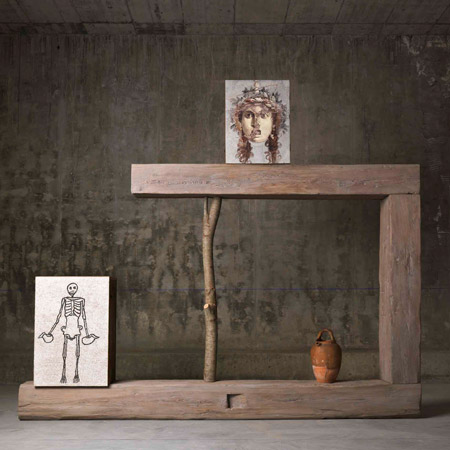
Grandi Legni by Andrea Branzi
A collection of wooden pieces by Italian architect and designer Andrea Branzi will be exhibited at Galerie Azzedine Alaïa in Paris next month.
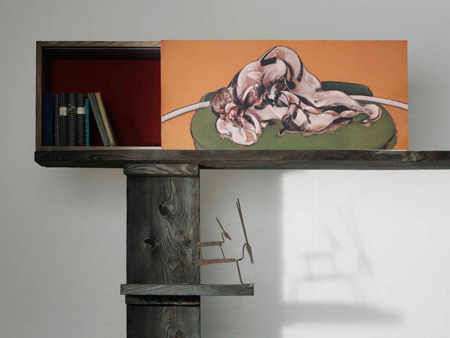
Called Grandi Legni, the designs have been produced by Milan galleries Design Gallery Milano and Nilufar Gallery.
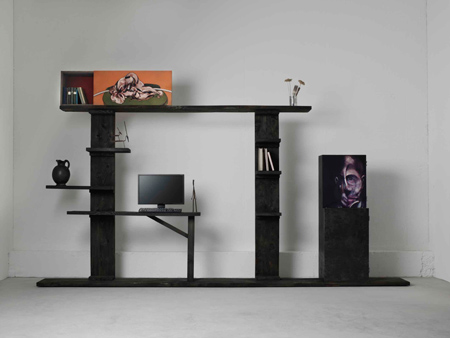
The configurations combine reclaimed beams, mosaics, found objects and chicken wire.
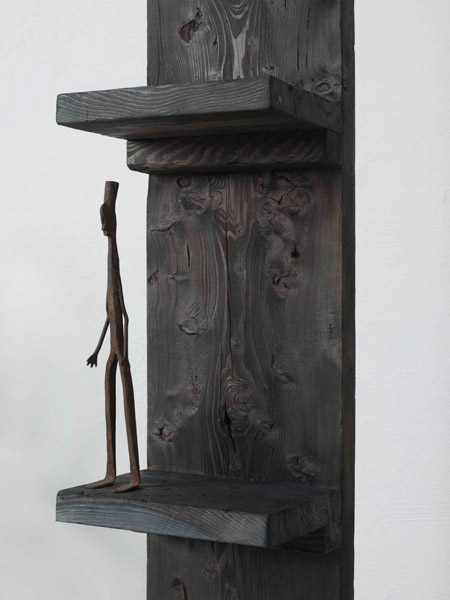
The exhibition begins 10 December and continues until 17 January 2010. Photographs are by Ruy Teixeira.
Here's some more information from the gallery:
--
Grandi Legni belongs to a recent stage of the long experimenting work brought about by Andrea Branzi, searching for environmental archetypes supporting the icons of the language complexity characterising the contemporary world: history traces, those of technology, of modern and ancient art. Objects being halfway between wooden architeture installations and everyday things.
Against the development line of contemporary design, seeming imprisoned in its own formal perfection and its own self-referencing, Grandi Legni represent an exit towards deeper anthropologic lands, into the magic and myth. Some sort of mystery presences speaking a primeval and wholly original language. Objects-structures belonging to a world where man’s handwork talks with the milieus of depth, great narrations, religion, nature, of time passing by.
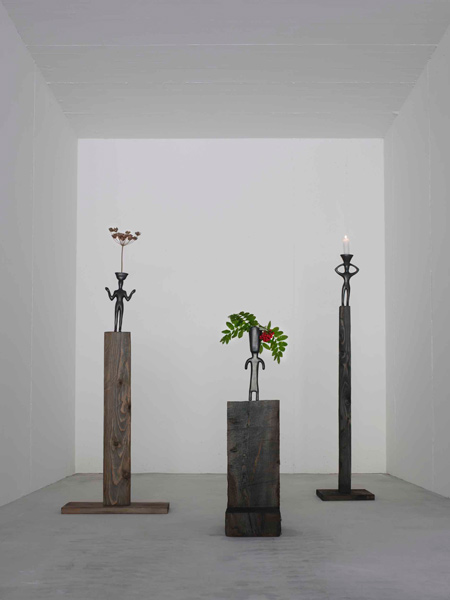
As regards his Large-sized Woods – as the English translation could sound – Branzi speaks about “animist roots”, of objects boasting a soul: it’s enough to bring it to the surface, but contemporary design can’t always succeed and it can even suppress it sometimes.
“The relating space between man and objects can be an opaque relation, not all is done in the sunlight. Some objects are of good omen, others are not. The culture of the project has lost this charismatic capability. Through an ever more aseptic and anonymous environment objects are charged with this witness due to their own shaman function of linking everyday reality with a deeper and still unexplored dimension.” (Andrea Branzi)
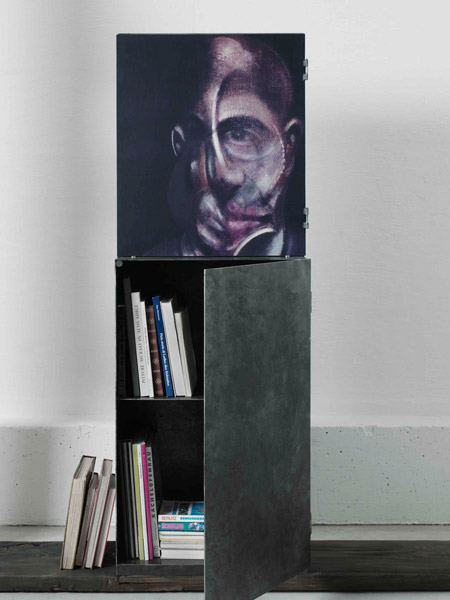
Thus Branzi’s choice to draw from a whole repertoire of historical images, being familiar even though their origin is unknown. Drawing from man’s history can bring about an acceleration of density, not removing it. And the same can happen through his geography. The function of the Grandi Legni, according to Branzi, is that of carrying, supporting, drawing fatigue upon themselves.
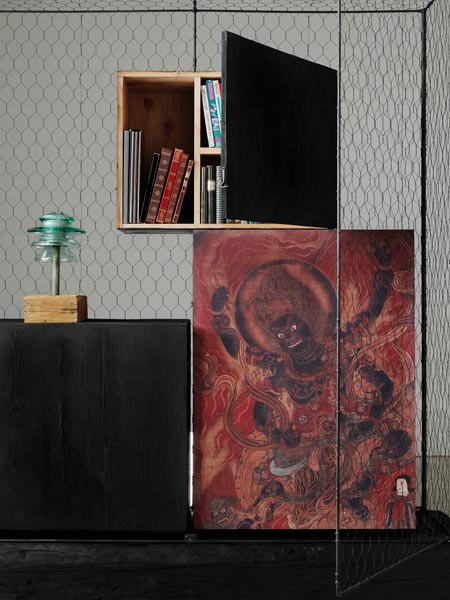
“Woods are Europe foundations”, are the basis on which the human landscape was built in its historical development. Let’s just think of the poles being Venice foundations, the inner frame of Paris, the support of all the agricultural areas.
The production of the Grandi Legni has brought about the search of old beams in Gadertal Alta Badia, the exploitation of a new 3M printing technology, the creation of lorentine semi-precious stones inlaids, of the small mosaics by Spilimbergo School, the exploitation of poor matters, just like a net for a hen-house…
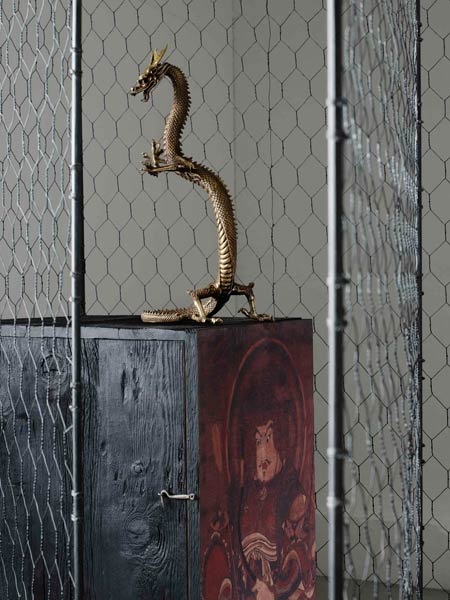
The collection has been produced by Mario Godani from Design Gallery Milano, boasting a long frequentation with the masters of contemporary design, and by Nina Yashar of Nilufar Gallery, a well-renowned name at an international level in the scouting and promotion of authors working in the boundary area between contemporary art and design. Their meeting – a quite rare episode in the world of design – is based on the acknowledgement of the value of both and their elective affinities in coping with visionary projects.